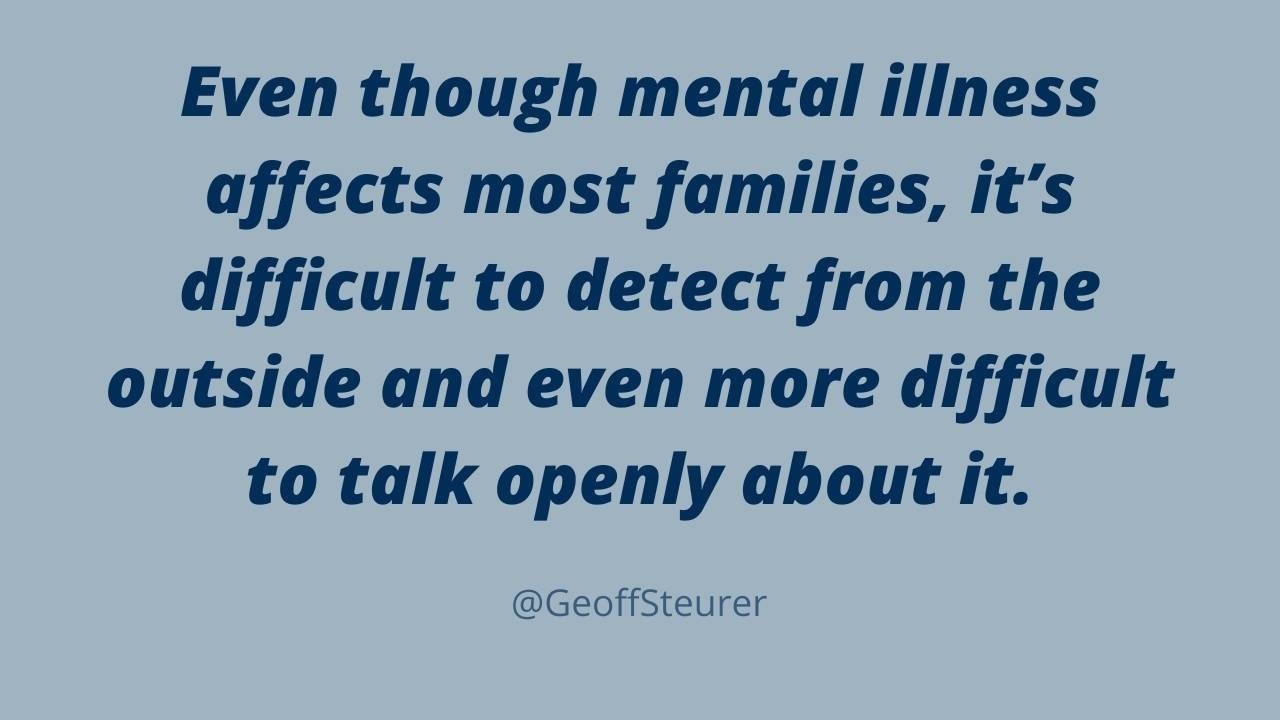
Q&A with Geoff: How do I help my mentally ill husband?
Question
My husband is mentally ill and has given up on everything, including treatment. He doesn’t want to get a job and says he’s done with life. This has really been taking a toll on me and I don’t know what to do for him anymore.
He tells me he doesn’t care about anything. When we try to talk it turns into an argument. I’m trying to do everything I can to keep things normal for our kids and trying to keep the bills paid on my own. But all of this is really wearing me down.
Please guide me on what I should do. I’m so lost.
Answer
I commend you for your commitment to your husband and children even though you’re facing some terribly difficult conditions. I hear your distress and exhaustion from years of trying to figure out how to support your husband, your children and yourself. Let’s talk about how to get you and your family some relief.
Your willingness to submit this question tells me you already know that breaking out of isolation by asking for help needs to be your priority. You cannot keep doing this alone and getting help is now non-negotiable. Even though mental illness affects most families, it’s difficult to detect from the outside and even more difficult to talk openly about it.
The isolation for those suffering and for those helping them adds an additional layer of unnecessary suffering to an already tough battle.
Thankfully, you don’t have to figure this out on your own. There are compassionate professionals and supportive community organizations who can help you get the education and clarity you desperately need to more forward. I encourage you to start with the educational and support resources offered by the National Alliance on Mental Illness available online at this link.
If your community doesn’t offer in-person support groups, there are online educational and support options available through NAMI.
These resources will put you in touch with people who not only understand but have direct guidance on how to handle the unique challenges of living with someone suffering from mental illness. You love your husband, but you don’t love what his untreated mental illness is doing to him, you and your family.
I know you’ll experience relief as you begin to find answers and direction with these supports.
Even if your husband refuses to seek help, make sure you are seeking professional and community help for yourself and your children. It’s understandable that you would focus all your efforts on managing his mental illness, but please don’t forget to take care of your own mental health.
Mental illness can hold entire families hostage for generations, so do everything you can to limit the impact it has on your safety and quality of life.
It’s agonizing to see your husband’s illness take over his will to function and even his will to live. You feel so powerless watching him neglect himself and his responsibilities. Therefore, it’s critical for you to get the specific education and support, so you know where to draw the line in the sand with him.
I can’t possibly know what boundaries to recommend, as I know nothing of his mental illness or your situation. However, as you work closely with these supports, you’ll have more clarity about where to be firm and where to accommodate. You’ll need this confidence as you move toward healing and make difficult decisions that may intensify the situation for everyone involved.
I don’t want to minimize how complicated this is, as untreated mental illnesses are not only serious, but also life-threatening. Each decision you make can feel like it’s a matter of life and death, so it’s normal to feel paralyzed and stay in self-preservation mode. It takes courage to start taking more direct action by setting limits, undoing enabling patterns and involving others.
You’re not being disloyal to your husband by seeking outside help from therapists, community supports or clergy. He’s compromised by this illness and, even though he can’t see it, your willingness to stand up to these unhealthy patterns will help him and everyone involved.
I love the reminder from Jeffrey R. Holland for loved ones who give care to those with mental illness:
"If you are the one afflicted or a caregiver to such, try not to be overwhelmed with the size of your task. Don’t assume you can fix everything, but fix what you can. If those are only small victories, be grateful for them and be patient. For caregivers, in your devoted effort to assist with another’s health, do not destroy your own. In all these things be wise."
I’m glad you’ve started the process of seeking outside help. While I don’t know what decisions you’ll need to make or where your journey will take you, I know things don’t have to stay the same as they are right now.



